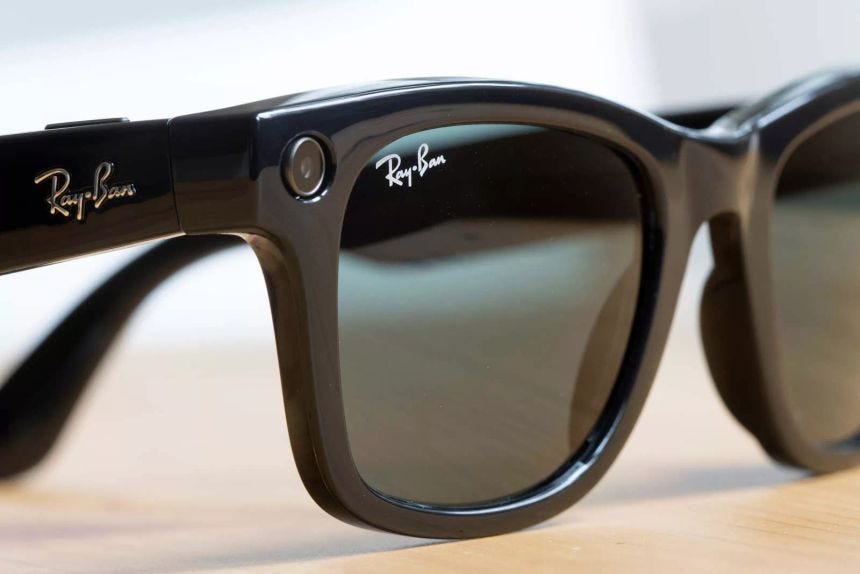Baidu, China’s leading search engine company, has entered the AI-integrated hardware market with the unveiling of its artificial intelligence-powered smart glasses. The launch, which took place at a recent Baidu event in Shanghai, signals a bold move as Chinese tech giants compete to capitalize on the growing trend of AI-driven consumer devices. Li Ying, head of Baidu's hardware division Xiaodu, described the smart glasses as a personal assistant, highlighting their ability to track users' calorie consumption, answer environmental queries, play music, and even capture video. Powered by Baidu’s own large language model, Ernie, the glasses will serve as a showcase of the company’s AI ambitions, with the product expected to hit the market in 2025, initially for Chinese consumers.
Despite China trailing the U.S. in developing cutting-edge language models like OpenAI’s GPT, experts argue that Chinese companies have the upper hand in producing sophisticated AI-powered consumer hardware, leveraging the country’s robust electronics manufacturing capabilities. Baidu’s entry into the smart glasses market comes at a time when Western competitors such as Meta and Snap are aggressively expanding their own offerings. Meta, for instance, has partnered with Ray-Ban on a smart glasses series, priced up to $379, but these products are unavailable in China, highlighting the ongoing tech rivalry between the U.S. and China.
Baidu’s smart glasses represent a significant step forward in the country’s efforts to dominate the AI hardware space. Unlike earlier attempts by startups, the major Chinese tech companies are now stepping up their game. Baidu, which is also known for its AI chatbot Ernie Bot, has already integrated this technology into other devices, such as a virtual dashboard that helps families monitor elderly relatives. This AI-powered dashboard can remind users to take medication or connect them to virtual doctors, showcasing Baidu’s push to incorporate Ernie Bot into various practical consumer applications.
Alongside the smart glasses, Baidu unveiled its new AI image generator, iRAG, which uses retrieval-augmented generation (RAG) technology to reduce "hallucinations" in AI responses, improving accuracy and reliability. This move comes as part of Baidu’s broader strategy to strengthen its AI offerings, positioning itself as a leader in China’s competitive AI space.
Despite the promising product launches, Baidu’s stock has seen a significant decline of 26% since the start of the year. Investors have expressed concerns over Baidu's ability to turn its AI investments into profitable ventures, particularly given the company’s reliance on advertising revenue from its search engine. While Tencent and Alibaba have seen their stocks rise in 2024, Baidu has struggled to win over investors, who have been less impressed by the company's AI developments.
In contrast, ByteDance, the parent company of TikTok, has overtaken Baidu’s Ernie Bot with its own chatbot, Doubao, which has become the leading AI chatbot in China in terms of monthly active users. Doubao’s success has added pressure on Baidu, which now faces stiff competition in both the chatbot and AI hardware markets. Nonetheless, Baidu remains determined to push ahead, confident that its integration of AI into consumer products, combined with its technological expertise, will eventually help it reclaim its position in the rapidly evolving market.
FT.COM
Read More






 Friday, 27-02-26
Friday, 27-02-26







